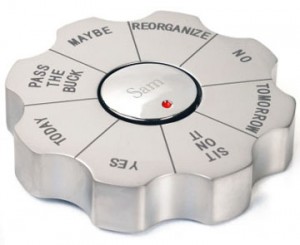How Many Choices Should You Offer?
Check the psychological distance of the decision-maker.
 When making decisions about purchases, jobs, vacations or just what to do with free time we like to have a choices. Cognitive designers often worry about how to make such decisions not only easy but enjoyable and part of the value the decision-maker experiences. After all, anticipating and planning can create positive psychology, savoring and even Dopamine release! On the other hand it can lead to confusion, irritation and choice overload. So I am always on the lookout for new scientific studies that examine how the number and framing of decisions or choices can create a positive think-and-feel experience.
When making decisions about purchases, jobs, vacations or just what to do with free time we like to have a choices. Cognitive designers often worry about how to make such decisions not only easy but enjoyable and part of the value the decision-maker experiences. After all, anticipating and planning can create positive psychology, savoring and even Dopamine release! On the other hand it can lead to confusion, irritation and choice overload. So I am always on the lookout for new scientific studies that examine how the number and framing of decisions or choices can create a positive think-and-feel experience.
For example, researchers at Washington University in St Louis have found evidence that psychological distance impacts our preference for assortment size. If what we are making a decision about is spatially far away or pushed into the future we naturally prefer fewer choices. If it closer in space-and-time we get value from having additional choices. In a news release the researchers explain it this way:
“Psychological distance is common concern when consumers are making decisions related to the future such as vacation, insurance, or retirement planning. In such instances, consumers tend to focus on the end goal and less about how to get there. When planning a vacation that is months away, a consumer would probably prefer to hear about fewer dining options in the city they will be visiting than if their vacation was coming up in less than a week.”
While this in-the-future effect should not be a surprise to readers of the Cognitive Design blog, the researchers also claim it happens we make decision about far away locations.